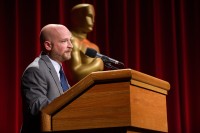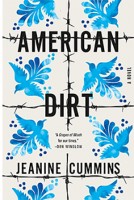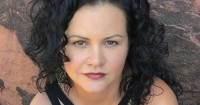More city, less village
thebookseller.com – Saturday February 22, 2020
Last month at the Association of Authors’ Agents (AAA) a.g.m., I stepped down from AAA Committee after six years, the last two in the role of president. I am proud to have worked for a trade association whose value for its members is unquestionable. I am not referring to our informative or social events, or our advocacy for agents and authors to publishers and in the public sphere, though they are great. Rather, to the fact that —because any cowboy can call themselves a literary agent—membership of the AAA is the only simple way for an agent to convey their seriousness and reliability as a professional. All our agencies commit to abide by our Code of Practice and its associated guidelines, you see.
Beyond that joint commitment, and our fiduciary duty to put our clients’ interests first, the AAA is a pretty broad church in many enjoyable ways. But although many AAA members are actively engaged in the project of making our profession more inclusive, we are still an undeniably white, middle-class group, for the most part.

How to be a film writer
source.wustl.edu – Sunday February 9, 2020

Joey Clarke, AB ’07, moved to Los Angeles after graduation in hopes of making it as a film writer. He worked a variety of low-level jobs but admits he didn’t put the effort he needed into writing. A relationship and a change of scenery helped kick-start his film writing career, and in 2018 he won the Academy Awards’ Nicholl Fellowship in Screenwriting for his script Miles. Here, he shares some tips about what has worked for him and how writing for film is — and isn’t — the same as other types of writing.

Publishing's 'American Dirt' Problem
publishersweekly.com – Saturday February 1, 2020

Ask someone who works in publishing what they think of American Dirt and they might tell you they’re not the best person to speak to the situation. Or that they haven’t read the novel. They might directly reference their privilege, then suggest you ask one of the handful of Latinx people who edit or sell books.
This was the reaction from myriad publishing professionals when questions were put to them about the latest controversy that has engulfed their business.
Two weeks ago Jeanine Cummins’s novel, about a bookseller from Mexico who flees to America with her son in tow to escape the local drug cartel, was a bestseller-in-waiting, riding a wave of critical support to its January 21 release date. Now it is a cultural lightening rod, and its author is at the center of a complex debate about power, privilege, and who should be given a platform to tell what stories. Though many insiders say they welcome the conversation that the book’s publication has inadvertently raised—about which books the industry chooses to elevate, and whether it’s properly equipped to champion the work of diverse voices—they’re stunned at the aggressive turn the debate has taken. And, even if they won’t say so publicly, they admit feeling sorry for Cummins who, as an author, should not have to answer for the shortcomings of the publishing industry as a whole.

‘American Dirt’ was supposed to be a publishing triumph. What went wrong?
latimes.com – Sunday January 26, 2020

It was poised to be a blockbuster long before copies arrived in bookstores last week: a thrilling contemporary migration story following a mother and her son, desperate to cross Mexico and reach the United States.
Its publisher, Flatiron Books, an imprint of Macmillan, paid a seven-figure advance after outbidding several competitors for the novel. It snagged a coveted selection in Oprah’s Book Club and had been shipped to key celebrity influencers, including Stephen King, Sandra Cisneros and Salma Hayek. A reported first run of 500,000 copies was printed. The film rights were sold.
But by week’s end, the novel “American Dirt” had garnered attention that its boosters likely didn’t expect: angry charges of cultural appropriation, stereotyping, insensitivity, and even racism against author Jeanine Cummins, who herself said in the book’s author’s note, “I was worried that, as a nonmigrant and non-Mexican, I had no business writing a book set almost entirely in Mexico, set entirely among migrants.”
Despite the backing of towering figures in American media, Cummins’ page-turning portrayal of a mother on the run is now at the center of the first bonafide literary controversy of the year, and is forcing a hard reflection on the state of Latinos in a cultural field that remains overwhelmingly white.

How to embrace your inner poet in 2020
harpersbazaar.com – Tuesday January 7, 2020

In 2017, Isabella Macpherson and Gala Gordon launched a platform for rising actors, directors and writers from all backgrounds, but particularly women. Since then, Platform Presents has grown in size and influence, evolving from a singular poetry evening to full play readings involving big star names.
Poetry is still a focus and passion for the company and on 9 February, Macpherson and Gordon will stage its 2020 Poetry Gala where high-profile actors and actresses will read the world's best-loved poems, as directed by Gemma Arterton. The line-up includes Chiwetel Ejiofor, Rhys Ifans, Holliday Grainger and Juliet Stevenson to name but a few.

'Fight Club' author Chuck Palahniuk takes readers to writing school in new book 'Consider This'
eu.usatoday.com – Monday January 6, 2020

It's no secret that going to school for a Master of Fine Arts (MFA) in creative writing is expensive. But with the release of his new book, "Consider This: Moments in My Writing Life After Which Everything Was Different," Chuck Palahniuk is offering an alternative.
"It costs a fortune to get a MFA degree in creative writing, and there are people who don't have that money and don't have that time and don't live anywhere close to a school that has a program like that," the author explains to USA TODAY.
Now, the novelist who has published more than two dozen books, including "Fight Club" (1996), is looking to share the most important moments and lessons that helped mould him in his new book, which hits shelves Jan. 7.

Author Elizabeth TenHouten: “To be a great author don’t be afraid of what others will think”
thriveglobal.com – Monday January 6, 2020

As part of my interview series on the five things you need to know to become a great author, I had the pleasure of interviewing Elizabeth TenHouten. Elizabeth is an international bestselling beauty author and poet. She has authored two beauty books with Random House and is currently working on her first poetry book, titled: The Softest Sting.

Debut fiction by women shook up the Indian literary scene in 2019
livemint.com – Monday December 30, 2019

- First-time women writers dominated the literary fiction landscape in India this year
- They won prizes, appeared on shortlists, and published thematically daring books challenging patriarchal assumptions and political realities
It may seem superfluous to fuss about literary fiction and its fate in the fractious political climate Indians are living in, but the genre has, since its inception, held a mirror to social change, capturing truths that slip through the cracks of hardwired non-fiction. This year, in particular, has witnessed the triumph of women debut novelists. A series of powerful books by them have disrupted the familiar landscape of English-language publishing in India, usually filled with established names and stars. Thematically daring, crafted with precision and forging distinctive linguistic registers, these books help us experience our political and social realities more keenly. They also capture the collective desires and despairs that complicate our engagement with the India we are living in at the moment.

How Many Characters?
By G. Miki Hayden
Instructor at Writer's Digest University online and private writing coach
firstwriter.com – Monday December 30, 2019

I never really thought about how many characters might be best in a novel because my characters have always had real and necessary roles, and that’s what I’ve stuck by. But recently I had a student whose novel is off to the races with 10 different third-person point of view characters and about an equal number of secondary characters. The student was struggling with whether that was optimal or whether she needed to ditch the whole project. Hey, wait, never toss a project until you’ve pondered the various implications.

The 2010s were supposed to bring the ebook revolution. It never quite came.
vox.com – Monday December 23, 2019

At the beginning of the 2010s, the world seemed to be poised for an ebook revolution.
The Amazon Kindle, which was introduced in 2007, effectively mainstreamed ebooks. By 2010, it was clear that ebooks weren’t just a passing fad, but were here to stay. They appeared poised to disrupt the publishing industry on a fundamental level. Analysts confidently predicted that millennials would embrace ebooks with open arms and abandon print books, that ebook sales would keep rising to take up more and more market share, that the price of ebooks would continue to fall, and that publishing would be forever changed.
Instead, at the other end of the decade, ebook sales seem to have stabilized at around 20 percent of total book sales, with print sales making up the remaining 80 percent. “Five or 10 years ago,” says Andrew Albanese, a senior writer at trade magazine Publishers Weekly and the author of The Battle of $9.99, “you would have thought those numbers would have been reversed.”
And in part, Albanese tells Vox in a phone interview, that’s because the digital natives of Gen Z and the millennial generation have very little interest in buying ebooks. “They’re glued to their phones, they love social media, but when it comes to reading a book, they want John Green in print,” he says. The people who are actually buying ebooks? Mostly boomers. “Older readers are glued to their e-readers,” says Albanese. “They don’t have to go to the bookstore. They can make the font bigger. It’s convenient.”
Ebooks aren’t only selling less than everyone predicted they would at the beginning of the decade. They also cost more than everyone predicted they would — and consistently, they cost more than their print equivalents. On Amazon as I’m writing this, a copy of Sally Rooney’s Normal People costs $12.99 as an ebook, but only $11.48 as a hardcover. And increasingly, such disparities aren’t an exception. They’re the rule.
So what happened? How did the apparently inevitable ebook revolution fail to come to pass?
Get the free newsletter | Submit a news item or article | Get Writers' News for your website





